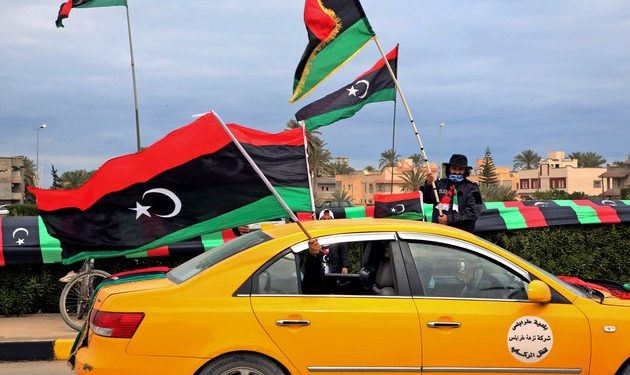The U.N. Security Council urged the Libyan transitional government on Thursday to complete the necessary groundwork to hold national elections on time in December, as concerns grow that they could be postponed.
“The Security Council stresses the importance of free and fair presidential and parliamentary elections that are inclusive and credible and underlines the importance of arrangements to ensure the full, equal and meaningful participation of women and the inclusion of youth,” the 15-nation council said in statement.
Elections are scheduled for December 24 – 70 years to the day since Libya declared independence in 1951. But critical work remains to be done, with less than six months to go, including preparing legal and constitutional frameworks for the vote.

At a conference in Tunis in November 2020, 75 men and women came together as the Libyan Political Dialogue Forum (LPDF) and chose the date and agreed to a road map to get the war-battered country to elections intended to be inclusive, credible and democratic.
The LPDF met for five days this month in Geneva, but the meeting ended without resolving the key issue of establishing a constitutional basis for the national elections.
“It became clear in Geneva that LPDF members were fragmented into various blocs and interest groups with different affiliations,” Jan Kubis, head of the U.N. mission in Libya, told the council. “The various blocs maintained their entrenched positions reflected also in their proposals, and the LPDF was unable, unwilling, to reach an agreement on a final proposal for a constitutional basis for the elections.”
Kubis said the uncertainty is causing the situation in the country to become “more difficult, confrontational and tense.”

Libya’s prime minister attended Thursday’s meeting. Abdul Hamid Dbeibeh said his office is doing its part, having formed a ministerial committee to support the elections and allocating funding for the High Commission for Elections.
“I call on my sisters and brothers in the House of Representatives and the High Council of State and members of Libyan Political Dialogue Forum to fulfill their responsibilities and allow us to reach consensus so that we can hold the elections in the scheduled time,” Dbeibeh said.
Arab League Secretary-General Ahmed Aboul Gheit warned against changing the election date, saying it “would risk plunging the country into another dark tunnel with political divisions and disagreement, which no one wants.”
Germany has been active in trying to help the Libyan parties find a negotiated solution to the conflict. It has hosted two rounds of talks in Berlin involving several stakeholders, the most recent on June 23, and is eager not to see progress jeopardized.

Berlin Conference on peace in Libya at the German Foreign Ministry in Berlin, June 23, 2021.
“We must take a strong stance against those who favor postponing the elections for selfish political motives,” Foreign Minister Heiko Maas said. “Here, the Security Council must reaffirm that it will not tolerate any obstruction.”
“The international community clearly and fully supports the Libyan people on their road to national elections,” U.S. Ambassador Linda Thomas-Greenfield said. “Now, we must do everything we can to help ensure potential spoilers – both internal and external – do not derail months of hard-fought progress.”
In its statement, the council also called on states to comply with the arms embargo imposed on Libya, to refrain from interfering in the fighting, and to withdraw all foreign fighters and mercenaries without delay.
Instability, fighting and foreign interference have proliferated in Libya since the ouster and killing of longtime dictator Moammar Gadhafi in 2011.






